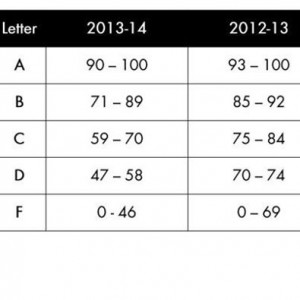Recently, I wrote about the Tennessee Comprehensive Assessment of Poverty, or TCAP. In that piece, I talked about how concentrated poverty combined with low investment in schools led to poor educational outcomes. I also mentioned how the broken BEP impacts districts because it is inadequate to meet the needs of Tennessee’s schools.
Now, I want to share the data I used to make those claims.
This data will show % of investment above BEP requirements, 3 year average ACT score (where applicable) and average TCAP scores.
The Top 10
District % above BEP 3 yr ACT avg. TCAP avg.
FSSD 44.94% n/a 63
Rogersville 19.83% n/a 60
Newport 14.51% n/a 62
Maryville 33.8% 23.8 65
Oak Ridge 37.23% 23.1 58
Williamson 20.5% 22.9 67
Greeneville 27.47% 22.1 58
Johnson City 26.77% 22.1 61
Kingsport 31.85% 22 59
Shelby 17.32% 20.8 58
AVERAGE 27.42% 22.4 61.1
The Top 10 districts in terms of student achievement invested nearly 28% above the BEP requirements and had an ACT average well above the state average.
The Bottom Ten
District % above BEP 3 yr. ACT avg. TCAP avg.
Lake 5.07% 18.1 41
Union 4.91% 17.9 45
Madison 14.22% 17.9 46
Campbell 3.4% 17.7 44
Haywood 6.48% 17.5 41
Hardeman 11.58% 17 46
Hancock 4.49% 16.6 44
Memphis 19.15% 16.4 38
Fayette 9.83% 16.3 42
Humboldt 13.5% 16.2 43
AVERAGE 9.26% 17.16 43
The bottom ten districts in terms of student performance invest less than 10% above the BEP formula and have an ACT average well below the state average.
The top 10 districts spend an average of 3 times more than the bottom 10 in terms of investment over the BEP formula. They also have an ACT average that is 5 points higher and a TCAP average that is nearly 20 points higher than the bottom ten.
Interestingly, even the bottom 10 districts spend just over 9% more than the BEP formula on average. That’s a sure sign that districts can’t run on the funds and funding levels established by the current BEP. The BEP is simply inadequate to meet Tennessee’s educational needs.
For more on education politics and policy in Tennessee, follow @TNEdReport
